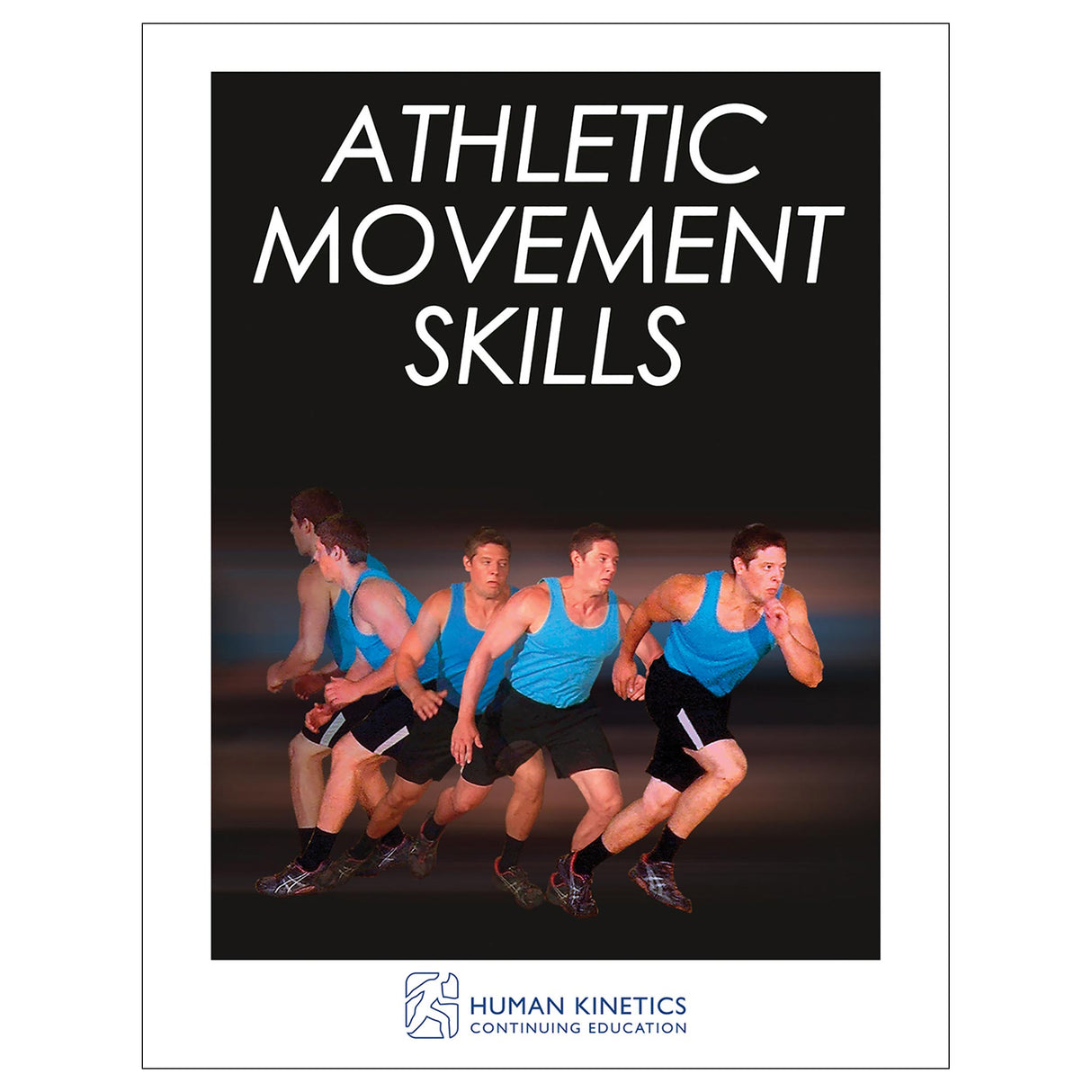Athletic Movement Skills Online CE Course With Ebook
Author: Human Kinetics
$104.95 CAD
Human Kinetics strongly recommends that you complete your exam within the calendar year of your date of purchase to ensure approved credits do not expire for your organization.
- Athletic Movement Skills ebook
- Online study guide
- Online continuing education exam
Clive Brewer shares his high level of expertise—drawn from sport science research and champion-producing applications—to explain body mechanics, performance development, and effective training, regardless of the age and stage of the athlete. Beginning with foundational elements such as observing, analyzing, and improving postural control to develop more resilient athletes, this course presents a progressive structure for creating a movement program to accelerate the development of multidirectional speed, power, and functional strength.
Hundreds of photos and illustrations, plus 10 detailed exercise progressions, provide strong visual presentation of exercise progressions to encourage good technique in skills such as jumping, landing, accelerating, decelerating, and changing direction. An accompanying study guide helps solidify learning from each chapter.
Once you complete the course and pass the exam, you can print a certificate for continuing education credits.
Learning Objectives
- Describe the basic concepts of movement skills.
- Explain the roles of the musculoskeletal system, neuromuscular system, and bioenergetics system in athletic development.
- Distinguish motor development patterns from childhood through late adolescence.
- Apply basic biomechanical principles to athletic movement skills.
- Explain the importance of posture in athletic movement and the role it plays in performance and injury prevention.
- Conduct basic testing protocols that will allow you to measure the athlete’s ability to control posture while stationary and during movement.
- Structure and sequence a training programme based on the principles in this course.
- Optimize running and agility drills for athletes.
- Explain and evaluate jumping and plyometric skills commonly used in athletic development.
- Recognize the importance of developing strength for the execution of athletic movements.
- Describe the fundamental principles of coaching movement skills in an athletic programme.
Audience
Athletic trainers, strength and conditioning coaches, and other certified professionals working with athletes to master the movement skills required in sport.Chapter 2. Understanding Biomotor Abilities
Chapter 3. Patterns of Motor System Development
Chapter 4. Efficiently Controlling Forces: Mechanical Functions of Movement
Chapter 5. Importance of Posture in Athletic Movement
Chapter 6. Evaluating Posture
Chapter 7. Designing a Progressive Curriculum: Considerations for Movement Skill Learning and Physio-Mechanical Training
Chapter 8. Developing Running Speed and Agility Skills
Chapter 9. Developing Jumping and Plyometric Skills
Chapter 10. Developing Functional Strength Progressions
Chapter 11. Applying Principles in Practice





